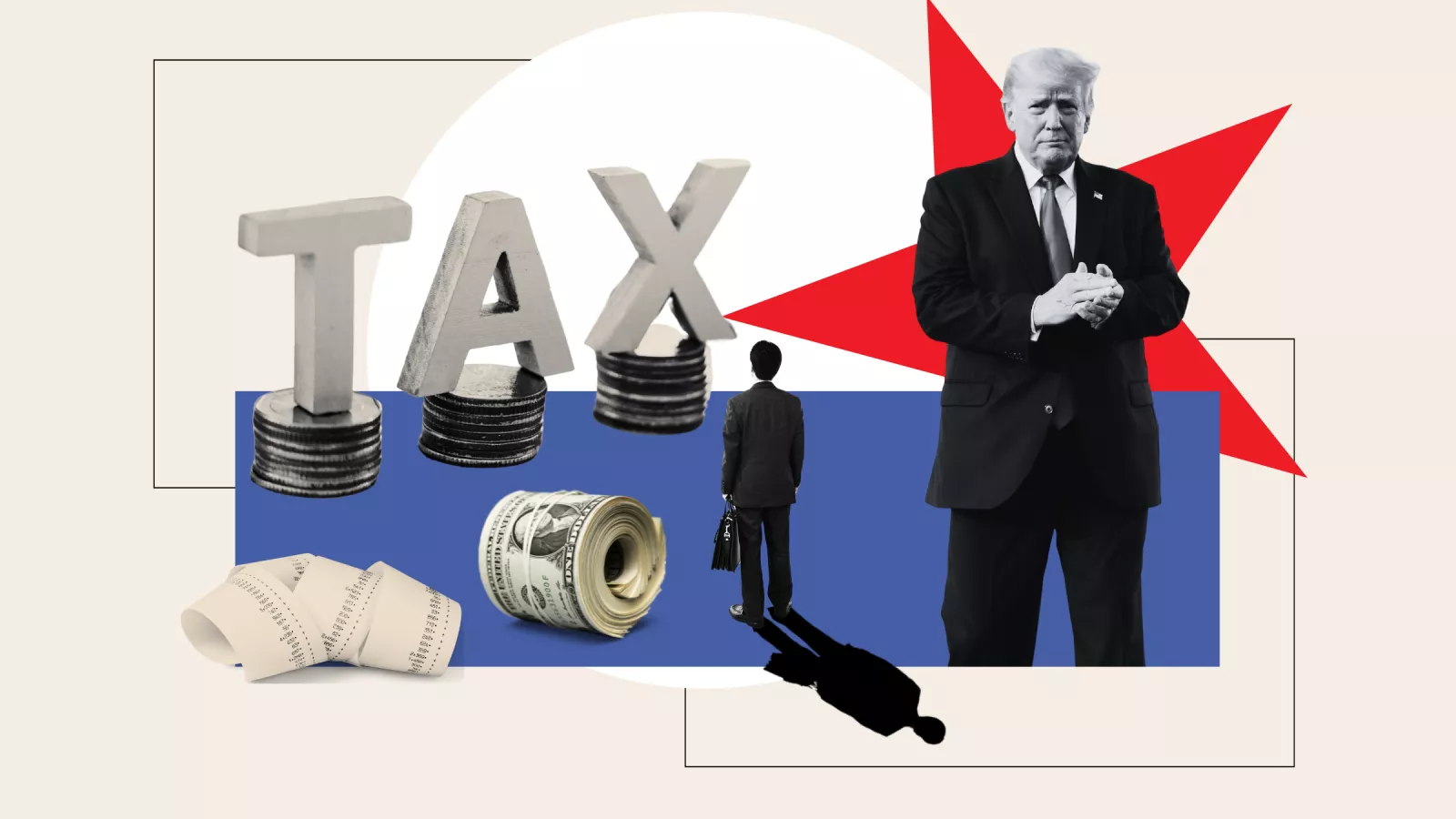As the 2024 presidential election draws ever closer, Donald Trump is revealing key tax plans that could shape his government. In his campaign, Trump has championed himself as the leader of low taxes, saying he would decrease corporation taxes, increase tariffs on international imports, and exempt some U.S. workers from current tax requirements. Now that the Republican leader has officially accepted his nomination for November, Newsweek has examined what he hopes to achieve with his taxation policy.
What Are Trump’s Major Tax Plans?
The Republican nominee has not yet released fully detailed tax plans if he wins a second term in office, but he has given some indication of what he plans to do. “The Trump view is that economic activity is sensitive to tax policy. In other words, it dynamically changes based on tax rates,” Peter Roskam, former Republican representative and current leader of the federal policy team at BakerHostetler, told Newsweek. “As the rate increases on an activity so does the cost, which means the activity diminishes. Since capital is fungible it moves to where it is most efficiently deployed. Based on this premise, taxes should be as low as possible to increase both economic activity and federal revenue and to welcome more people into prosperity.”
Tax and Jobs Cut Act
Among the biggest policy ideas floated by Trump is the extension of the 2017 Tax Cuts and Jobs Act (TCJA), which is currently due to expire in 2025. When it was first enacted under his stewardship in 2017, it created a single flat corporate tax rate of 21 percent, down from 35 percent under his predecessor Barack Obama. In an interview with Bloomberg, Trump said he wanted to cut the corporation tax rate further to 20 percent but also floated lowering it to 15 percent. “I liked 20 percent better,” he said. “I like 15 percent yet better, but I think that would be, you know, that’d be hard.”
Among numerous changes, it also included lowering the income tax brackets for all but the lowest earners, raised the standard deduction for individual taxpayers and small businesses, as well as boosting the child tax credit. Trump wants to extend his landmark tax policies from the TCJA if he returns to the White House. “The bottom line is that President Trump’s goal is to preserve the successful 2017 tax reforms, all of it,” Kevin Brady, former representative and chair of the House Ways and Means Committee and current senior consultant at Akin, told Newsweek.
“Among his priorities are protecting the middle-class tax cuts including the expanded standard deduction and child tax credit, preserving the historic Small Business Tax Deduction and taking a further step to lower the corporate tax rate that drove the highest three years of inflation-adjusted paycheck growth since data has been kept.”
“Locking in TCJA-era rates and ensuring that foreign corporate profits are shielded from domestic taxation will provide the predictability that corporate executives need to make the billion-dollar investment decisions that will power future U.S. economic growth and job creation,” Roskam said.
Tariffs and Income Tax
In terms of raising revenue to keep tax cuts on the table, Trump has also said he wishes to impose a universal baseline tariff on all U.S. imports as well as lifting current tariffs on China to at least 60 percent. According to CNBC, Trump floated the idea of eliminating income taxes and replacing the revenue with higher tariffs in a private meeting with GOP lawmakers earlier this year.
“Most intriguing policy idea from the GOP meeting at the Capitol Hill Club this morning,” Republican Representative Thomas Massie said on X, formerly Twitter. “Trump briefly floated the concept of eliminating the income tax and replacing it with tariffs.” Newsweek has contacted Trump’s campaign team for comment via email.
However, these policies have been criticized, with experts saying such a policy would only benefit the wealthiest Americans. “In addition to the legislative task of overhauling the Internal Revenue Code, it is difficult to envision how tariffs could completely replace the revenue from federal income taxes,” Assaf Harpaz, assistant professor at the University of Georgia School of Law, told Newsweek.
“In 2023, the federal government collected over $2 trillion from individual income taxes alone,” he explained. “Moreover, foreign governments may levy punitive tariffs in response to the policy, and increased costs would presumably roll over to individual taxpayers.”
Other tax policy experts are in agreement. “We estimate that if the two major tariff increases are implemented and met with in-kind retaliation from all trading partners, it would more than offset the entire benefit of the major tax cuts for economic output and jobs, resulting in a net loss for the US economy,” the Tax Foundation has reported.
It could also result in higher costs for Americans at home. Implementing higher tariffs “would undermine the impacts of extending tax cuts by increasing the prices for a wide range of consumer goods, including clothing, toys, laptops, and cell phones,” Demian Brady, vice president of research at the National Taxpayers Union Foundation, told Newsweek.
No Taxes on Tips
Announced on a campaign stop in Las Vegas on June 9, Trump said he wanted to exempt money earned in the form of tips from income tax levies for U.S. service workers. He later posted on Truth Social: “WITH TRUMP, NO TAXES ON TIPS!!!”
Trump also has not declared whether the proposal would exempt tips solely from federal income tax or whether it would also exempt tips from payroll taxes.
The Committee for a Responsible Federal Budget has predicted such a policy would “reduce federal revenues by $150 to $250 billion over 10 years on a static basis and could reduce revenue significantly more once behavioral effects are incorporated.”





